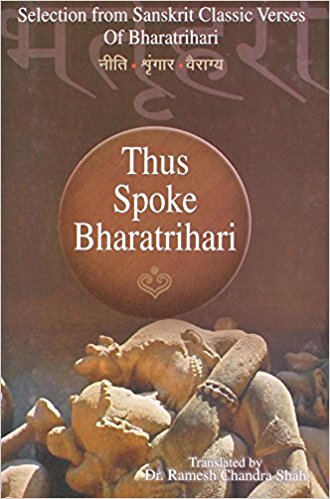The verses of Bhartrihari are among the most quoted from secular Sanskrit literature. Their almost timeless topicality and often poignant brilliance won them a repute both widespread and long-standing. At least twenty-five were included in the thousand year old anthology of poetry, the 11th century Subhashita Ratna Kosha of Vidyakara, and others can be seen in many later collections. Their manuscripts have been found from Maharashtra to Bengal and from Tamilnadu to Kashmir.
These verses are of the genre known as subhashita. The word literally means ‘well said’; and is used normally for single epigrammatic stanza, the meaning or mood of which is complete in itself. Bhartrihari’s verse epigrams are grouped in three shatakas or centuries on Niti or worldly life, Shringara or passion and pleasure, and Vairagya or renunciation. Apart from their felicitous phrasing, succinct imagery and aphoristic impact, many have an individuality which invests them with a personal touch.
This last quality reflects the poet’s ‘extremes of pain and pleasure, despair and exultation, sophistry and conviction, indulgence and detachment’ to quote the present translator. ‘Compelled by a strong sense of personal irony’, to quote another from the USA, ‘Bhartrihari sees man’s position as paradoxical in a transient, seductive world.’ These aspects doubtless add to the ancient poet’s attractiveness for modern sensibilities.

